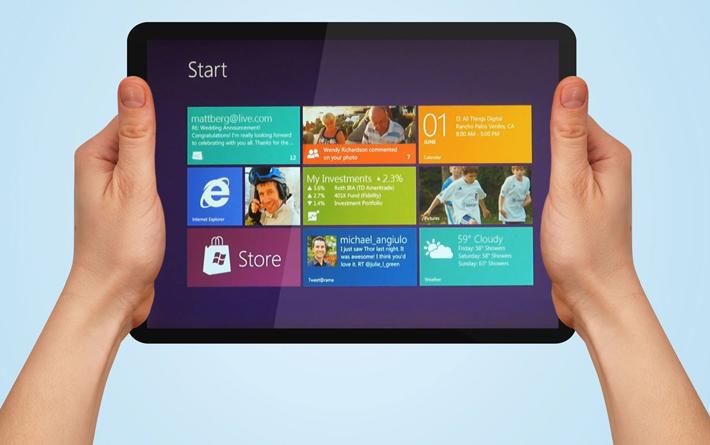Microsoft made a critical mistake at a time when they were also trying to make core changes to their operating system. These changes had already met resistance on the forums (including the Beta tester forums) and looked as if they might not meet what consumer’s wanted in an OS from Microsoft. So the market did something that was almost a self-fulfilling prophecy. Because they were concerned about consumer acceptance (and were mad at Microsoft) these manufacturers did not produce as many units as they might have before. They wanted to test the waters before committing to a deeper investment. This meant that Windows 8 and RT devices were manufactured and shipped in limited quantities. There was also a minor attempt to try and fool consumers into thinking there was a higher demand for the products than there was.
Microsoft and many analysts only saw sold out displays around the holidays not knowing (or acknowledging) that this was due to a lack of actual devices. Consumers already wary of the new devices with Windows 8 and RT moved to Android, found systems running on Windows 7, or simply kept what they had. It was an untenable position for Microsoft having just invested a ton of money into shifting their OS and business model away from being the OS Company. They lost consumer, enterprise and OEM confidence in one big step.
Now those same companies that were offended when Microsoft decided to directly compete with them are moving away from Windows RT completely and are shifting back to Android. In addition to the abandonment of Windows RT they are also not buying Windows 8 in the same quantities, but appear to be shifting to chromebooks instead. Acer has already stated that they want to increase their revenue from Google based products to as much as 30% by next year. This will be sure to take a big bite out of what Microsoft thought was their piece of the Acer pie. Acer is also not the only company making this move at a time when Intel is also beginning to focus on Linux for phones and tablets. It would seem that everyone is starting to make the shift away from Microsoft and Windows.
Microsoft has it within their power to fix all of this, but it is unlikely that they will do so. Instead they need to keep Widows 8 the say it is so they can push their cloud services. It will also end up killing Windows RT and making those devices obsolete within a couple of years. If Microsoft opened up Windows RT and allowed access to more of the OS for developers (and allowed the desktop to be prominent) and also gave the option to remove the Metro/Modern UI from desktops and laptops they could turn this around very quickly. Windows 8 is not a bad OS once you strip away Metro and allow for real multi-tasking and multi-application work. That is what people want when they buy a Windows system, not being locked into the Microsoft way of things. If the fact that OEMs are bailing as fast as Consumers is not enough for Ballmer and crew to get the hint, I do not think anything short of a massive management purge will do so.
Tell us what you think in our Forum




